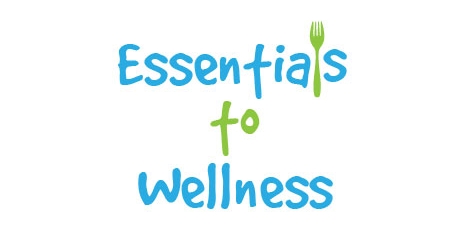Vegetables
/I love talking about vegetables. I didn't have the appreciation I now hold for them until I studied the science behind their nutrient power. I never understood that it was their nutrient content rather than their calorie content that was so important! Vegetables didn't necessarily make me full, so I didn't take advantage of all that color to nourish myself.
First off, we used to eat a lot more of them hundreds of years ago. We consumed them for the fiber and water content to feed our beneficial microbial population and to help with the elimination of waste. Fiber and water help to escort daily toxins out of the body through the digestive system by way of bowel movements.
And we ate them for the nutrients.
No single vegetable can give you all the nutrients you need, so a variety of vegetables should be a part of EVERY day. What I learned was that vegetables and fruits provide us with the majority of minerals and vitamins that we need to function. We need Vitamin A in the form of carotenoids (orange and yellow pigments, leafy green pigments), lutein and zeaxanthin for eye health. For healthy lymph system flow we need red pigment. Leafy greens provide among many, manganese and magnesium to run thousands of biochemical reactions that happen every second in your body. Eat at least one sulfur veggie each day to support your liver detoxification pathways.
We likely take for granted our cardiovascular systems on a daily basis, but a diet rich in vegetables will decrease your risk for cardiovascular disease. I try to get 3 leafy servings (3 cups) and at least 3-4 crunchy servings (1/2 cup each) every day. This is the best way to support your essential nutrients across the spectrum of vitamins, minerals and phytonutrients.
Then consider how to have a healthy blood pressure. There are more factors that go into blood pressure that I won't cover here, but suffice it to say that the nutrients in vegetables, including the big player potassium, are integral to having normal blood pressure. Eating more vegetables and fruits on a daily basis can lower high blood pressure. According to Harvard Health, eating more vegetables can be as effective as taking medication to lower blood pressure.(1)
Vegetable intake will also favorably lower your risk of diabetes and cancer. (1)
Besides all of the health benefits, vegetables are good for the planet
Growing vegetables is something we can all do. Grow parsley or basil. Fill a pot with lettuce seeds for salads. Eat certain varieties of flowers. Plant some perennial strawberries. Plants also nurture the soil and the soil microbiome beneath. Keep your plantings organic because they are better for you and better for the birds, bugs and bees.
---
Reference on Cardiovascular, Blood Pressure, Diabetes and Eye Health from Harvard Health Nutrition Source. https://www.hsph.harvard.edu/nutritionsource/what-should-you-eat/vegetables-and-fruits/ Accessed June 3 2018.

